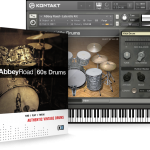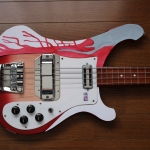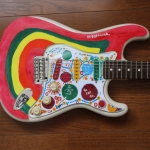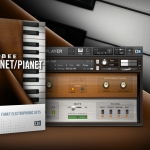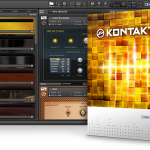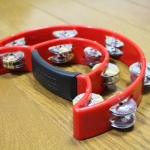composed by John Lennon & Paul McCartney ©1967 Northern Songs Ltd.
僕が彼で君も彼なら君は僕
僕らはみんな同じなのさ
彼らを見てごらんよ
まるで銃口から飛び出した豚みたいだ
泣けてくるね
1967年に発売されたビートルズにとって16枚目のオリジナル・シングルのB面(A面はHello Goodbye)。クレジットはLennon – McCartneyだが実質的にはジョン・レノンの作品である。
同年にビートルズ自身が製作・主演したテレビ用の映画MAGICAL MYSTERY TOURでも使用され、米キャピトル編集盤サウンドトラック・アルバムの6曲目(A面のラストナンバー)にも収録されている。
英国版のEPのブックレットには”No you’re NOT!” Said Little Nicolaというサブタイトルがつけられていた。
テレビ映画ではメンバーがサイケデリックな格好をしたり、セイウチの着ぐるみを着たりしてこの曲を演奏するシーンがある。
オーケストラ楽器やサウンドエフェクトをふんだんに盛り込んだ編曲で、完成までに1ヶ月を要した超力作。
ナンセンスな言葉遊びとも思える難解な歌詞も特徴的。タイトルの「セイウチ」はルイス・キャロルの「鏡の国のアリス」の「セイウチと大工」からとられたもの。歌詞に登場する「エッグマン」は同じく「鏡の国のアリス」の「ハンプティ・ダンプティ」。そして”Goo Goo Goo Joob”(または”Goo Goo g’ Joob”)は”Good Job”とセイウチの鳴き声をかけたもの。ややグロテスクな”Yellow matter custard…”からのくだりはジョンが昔書いた詞の引用とも言われている。
次のアルバムTHE BEATLESの収録曲Glass Onionには”The walrus was Paul.”という一節を入れ、ビートルズ解散直後の1970年のソロ曲Godでは”I was the walrus. But now I’m John.”と歌うなど、ジョンは折りに触れて「ウォルラス」を持ち出している。彼にとってそれだけ思い入れの強い曲であり、1980年のインタビューではこの曲を再録音したいと言っていた。
またポール・マッカートニーも自伝Many Years From Nowの中で、この曲をジョンの最高傑作の一つと称賛している。
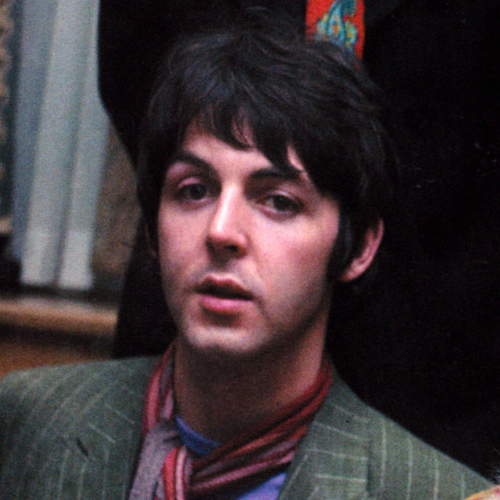
Everyone keeps preaching that the best way is to be ‘open’ when writing for teenagers. Then when we do we get criticized. Surely the word ‘knickers’ can’t offend anyone. Shakespeare wrote words alot more naughtier than knickers!
ティーンエイジャーのための曲を書く時、大切なのは「わかりやすさ」だっていつも言われる。だからこれは批判されたよ。でも「ニッカー」って言葉で不快になる人なんていないだろ。シェークスピアの方がよほど卑猥な言葉を書いてたじゃないか。
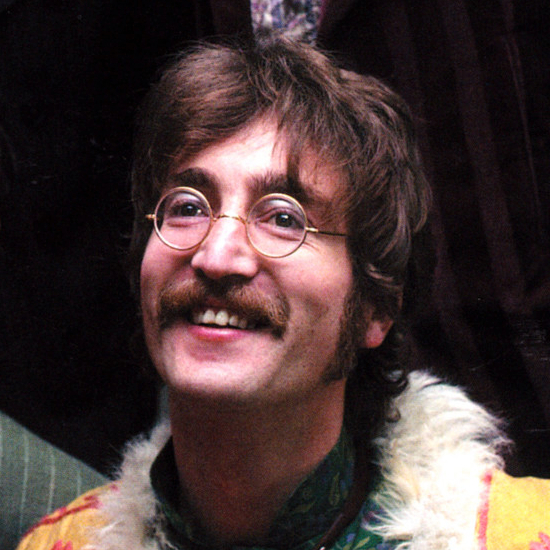
We chose the word (knickers) because it is a lovely expressive word. It rolls off the tongue. It could ‘mean’ anything.
僕らがその(ニッカーっていう)単語を選んだのはこれが意味深な言葉だからさ。口をついて出てきたんだ。実際には意味なんかないよ。
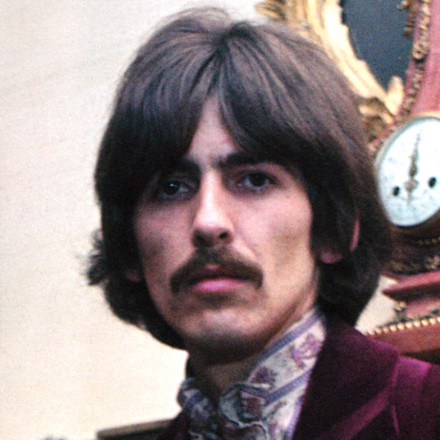
People don’t understand. In John’s song, ‘I Am The Walrus’ he says: ‘I am he as you are he as you are me.’ People look for all sorts of hidden meanings. It’s serious, but it’s also not serious. It’s true, but it’s also a joke.
みんなには理解できないよ。ジョンが「アイ・アム・ザ・ウォルラス」で「僕は彼で君は彼で君は僕」って歌った。みんなその隠された意味を探ろうとする。これは真面目でもあり戯れでもあり、真実でもあり冗談でもあるんだ。

We write lyrics, and I write lyrics that you don’t realize what they mean till after. Especially some of the better songs or some of the more flowing ones, like ‘Walrus.’ The whole first verse was written without any knowledge. With ‘I Am the Walrus,’ I had ‘I am he as you are he as we are all together.’ I had just these two lines on the typewriter, and then about two weeks later I ran through and wrote another two lines and then, when I saw something, after about four lines, I just knocked the rest of it off. Then I had the whole verse or verse and a half and then sang it. I had this idea of doing a song that was a police siren, but it didn’t work in the end (sings like a siren) ‘I-am-he-as-you-are-he-as…’ You couldn’t really sing the police siren.
後にならないと本当の意味に気づかないような詩を書く。いい曲とか浮いた感じの曲とかでは特にさ。「ウォルラス」みたいなね。冒頭の部分は考えずに書いたんだ。「アイ・アム・ザ・ウォルラス」で「僕は彼で君も彼で君は僕で僕らはみんな一緒」というやつさ。最初の2行をタイプライターで書いて2週間後にまた2行書いて、その4行を書いた時に何かがひらめいて残りを書き上げて曲にした。これをパトカーのサイレンみたいな感じで歌おうとしたけどうまくいかなかった。

The first line was written on one acid trip one weekend. The second line was written on the next acid trip the next weekend, and it was filled in after I met Yoko. Part of it was putting down Hare Krishna. All these people were going on about Hare Krishna, Allen Ginsberg in particular. The reference to ‘Element’ry penguin’ is the elementary, naive attitude of going around chanting, ‘Hare Krishna,’ or putting all your faith in any one idol. I was writing obscurely, a la Dylan, in those days. It’s from ‘The Walrus and the Carpenter.’ ‘Alice in Wonderland.’ To me, it was a beautiful poem. It never dawned on me that Lewis Carroll was commenting on the capitalist and social system. I never went into that bit about what he really meant, like people are doing with the Beatles’ work. Later, I went back and looked at it and realized that the walrus was the bad guy in the story and the carpenter was the good guy. I thought, Oh, shit, I picked the wrong guy. I should have said, ‘I am the carpenter.’ But that wouldn’t have been the same, would it? (singing) ‘I am the carpenter…’
最初の部分はある週末にトリップした時に書いた。次の部分は次の週末にトリップした時に書いた。そしてヨーコと出会った後に完成した。一部はクリシュナについてのことさ。クリシュナに興味を持ってた人が多かったんだ。アレン・ギンズバーグとかね。「ペンギン聖体」ってのは「ハレ・クリシュナ」みたいな偶像崇拝を簡素化した表現だよ。象徴としての意味さ。あの頃はディランの影響もあって曖昧というかいろんな意味に取れる表現を使ってた。あと「ふしぎの国のアリス」の「セイウチと大工」は僕にとってはとても美しい詩だったな。ルイス・キャロルが資本家や社会構造について言及していたとは思いもつかなかったけどね。でも後になって実はここではセイウチは悪人で大工が善人だってことに気が付いて「しまった!」と思ったよ。僕は「セイウチ」じゃなくて「大工」になるべきだったんだ。’I Am The Carpenter (俺は大工さん)’でもそんなに違和感ないだろう?
My Recording Data
Environment
HostApple iMac MC509J/A
ApplicationApple Logic Pro 10.3.1
Audio I/FNative Instruments KOMPLETE AUDIO 6
Tr.1 :: Drums
- KONTAKT 5 – Abbey Road 60s Drummer – Late 60 Kit
- Channel EQ > Compressor > Limiter
Tr.2 :: Bass
- Rickenbacker 4001 C64 (mix-full)
- Guitar Rig > Compressor
- 指弾き
Tr.3 :: E.Guitar
- FGN NCST-10R (rear)
- Guitar Rig > Channel EQ > Compressor
Tr.4 :: E.Piano
- SCARBEE CLAVINET / PIANET
- Amp > Channel EQ > Compressor
Tr.5 :: Violin
- KONTAKT 5 – Violin Solo
- Channel EQ > Compressor
Tr.6 :: Viola
- KONTAKT 5 – Viola Solo
- Channel EQ > Compressor
Tr.7 :: Cello
- KONTAKT 5 – Cello Solo
- Channel EQ > Compressor
Tr.8 :: Double Bass
- KONTAKT 5 – Double Bass Solo
- Channel EQ > Compressor
Tr.9 :: Horn
- KONTAKT 5 – French Horn
- Channel EQ > Compressor
Tr.10 :: Tambourine
- Tambourine (Headless)
- Channel EQ > Space D > Limiter
Tr.11 :: Chorus SE 1
- Vocal Transfer > Channel EQ > Pitch Shift > Ensemble > Compressor > Space D > Limiter
- egg manの合いの手、アウトロ掛け声
Tr.12 :: Chorus SE 2
- Vocal Transfer > Compressor > Space D
- egg manの合いの手、セリフ、スキャット、笑い声、アウトロ掛け声
Tr.12 :: Chorus SE 3
- Vocal Transfer > Channel EQ > Pitch Shift > Ensemble > Compressor > Space D > Limiter
- egg manの合いの手、笑い声、アウトロ掛け声
Tr.13 :: Noise 1
- ES1
- Tremolo
- アウトロのノイズ
Tr.14 :: Noise 2
- exs24 – Bit_Candle Basic
- アウトロのノイズ
Tr.15 :: Break SE
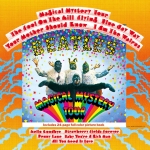
- 中間部のブレーク。オリジナル音源をそのまま配置
Tr.16 :: King Lear

- Channel EQ > ADT
- アウトロのリア王第4幕4場。個別トラックを入手したのでこれを配置
History
2017.02.26: version 2.1
2012.10.03: version 2.0
2003.05.18: version 1.0
Diary
- 宅録ビートルズ・2周目 – MAGICAL MYSTERY TOUR総括 (2017/05/08)
- I Am The Walrus – The Beatles (2017/02/26)
- 宅録ビートルズ・2周目 472 (2017/02/26)
- 宅録ビートルズ・2周目 471 (2017/02/25)
- 宅録ビートルズ・2周目 120 (2012/10/04)
Sources
- Wikipedia English, 日本語
- The Beatles Interviews Database

